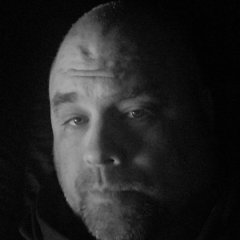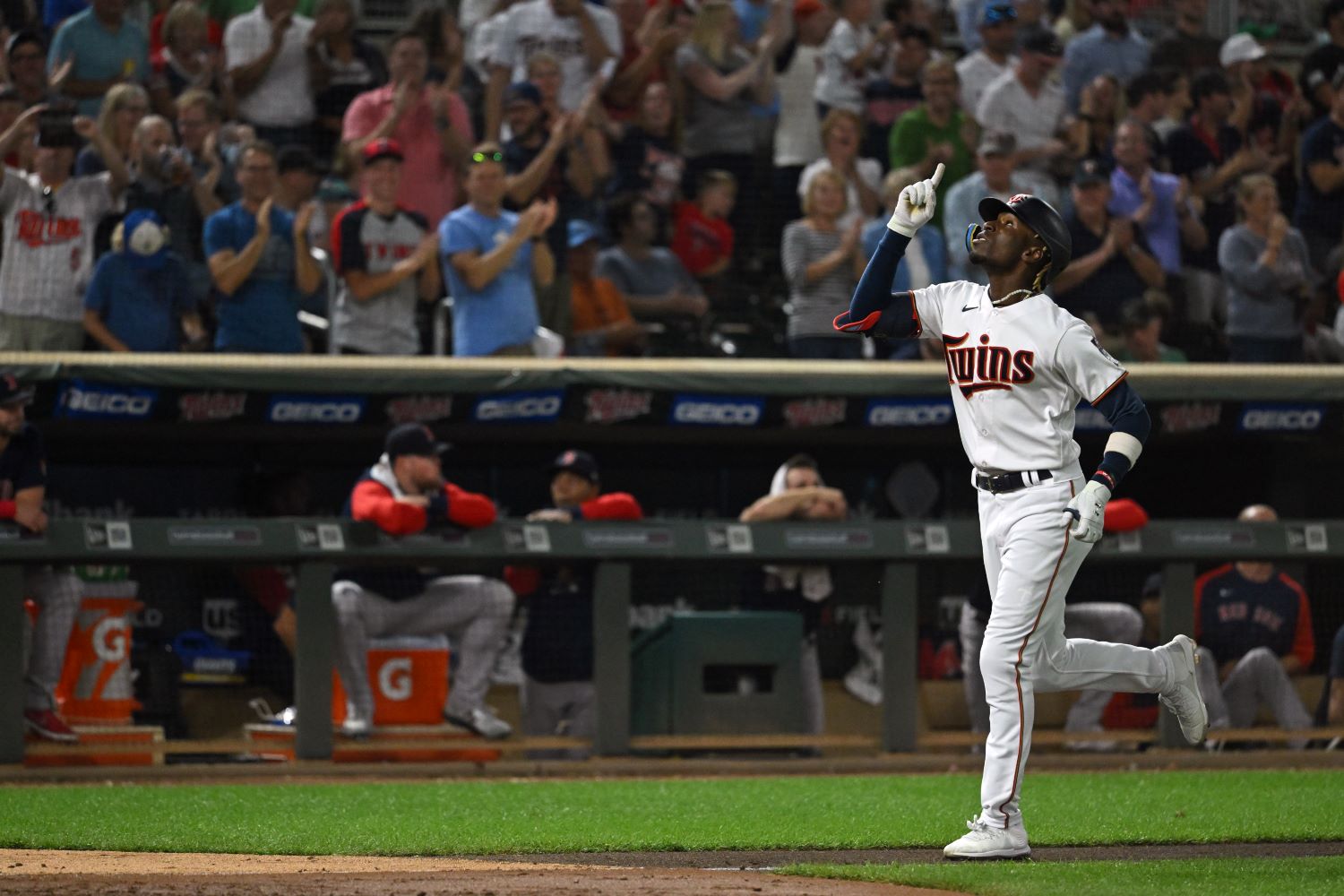-
Blog awstafki
-
The Lurker's Annual
-
Mike Sixel's Blog
-
Twins fan in Texas
-
highlander's Blog
-
Patrick Wozniak's Blog
-
Blog dennyhocking4HOF
-
From the Plaza
-
The Special Season
-
Twins Daily's Blog
-
Blog Twins best friend
-
Kyle Eliason's Blog
-
Extra Innings
-
SkinCell Pro: How Does Remove Mole & Skin Tag Work?
-
Blog Badsmerf
-
mikelink45's Blog
-
MT Feelings
-
Keto Burn Max Benefits
-
Blog crapforks
-
Off The Baggy
-
VikingTwinTwolf's Blog
-
A Blog to Be Named Later
-
Cormac's Corner
-
Blog MaureenHill
-
Halsey Hall Chapter of SABR
-
Road Tripping with the Twins
-
Greg Allen
-
Classic Minnesota Twins
-
The Line of Mendoza
-
BombazoMLB
-
Blog Twins Daily Admin
-
joshykid1's Blog
-
What if the Twins had drafted Prior or Teixeira instead of Mauer?
-
the_brute_squad's Blog
-
Better Baseball Is Ahead
-
Nick's Twins Blog
-
Blog jianfu
-
joshykid1's Blog
-
The PTBNL
-
Levi Hansen
-
SethSpeaks.net
-
Blog leshaadawson
-
Underwriting the Twins
-
Small Sample Size
-
parkerb's Blog
-
Tim
-
TwinsGeek.com
-
Blog Roaddog
-
Mauerpower's Blog
-
SotaPop's Blog
-
Face facts!!!
-
Over the Baggy
-
curt1965's Blog
-
Heezy1323's Blog
-
LA Vikes Fan
-
North Dakota Twins Fan
-
Blog Reginald Maudling's Shin
-
curt1965's Blog
-
Miller1234's Blog
-
Twins Curmudgeon
-
Blog Kirsten Brown
-
if we aint spendin 140 million
-
Boone's Blog
-
Rounding Third
-
Kirilloff & Co.
-
Shallow Thoughts - bean5302
-
The Hanging SL
-
Red Wing Squawk
-
Distraction via Baseball
-
Nine of twelve's Blog
-
Notes From The Neds
-
Blog Lindsay Guentzel
-
Blog Karl
-
Vance_Christianson's Blog
-
Curveball Blog
-
waltomeal's Blog
-
bronald3030
-
Knuckleballs - JC
-
Blog jrzf713
-
The Minor League Lifestyle
-
Jason Kubel is America
-
weneedjackmorris' Blog
-
Mahlk
-
Off The Mark
-
Blog freightmaster
-
Playin' Catch
-
Sethmoko's Blog
-
Dome Dogg's Blog
-
Lev's Musings
-
Blog Scott Povolny
-
Blog COtwin
-
Hrbowski's Blog
-
Minnesota Twins Whine Line
-
Bomba Blog
-
cjm0926's Blogs
-
Blog Chad Jacobsen
-
Blog ScottyBroco
-
tobi0040's Blog
-
Back Office Twins Baseball Blog
-
DannySD's Blog
-
nobitadora's Blog
-
blogs_blog_1812
-
Greg Fransen
-
Blog Adam Krueger
-
Hammered (adj.) Heavily inebriated, though to a lesser extent than ****faced.
-
Thegrin's Blog
-
3rd Inning Stretch's Blog
-
Mark Ferretti
-
Jeremy Nygaard
-
The W.A.R. room
-
Christopher Fee's Blog
-
Postma Posts
-
Rolondo's Blog
-
blogs_blog_1814
-
Fantasy GM
-
Blog Fanatic Jack
-
Dominican Adventure
-
Cory Engelhardt's Blog
-
markthomas' Blog
-
blogs_blog_1815
-
Un/Necessary Sports Drivel
-
Blog AJPettersen
-
Blog AllhopeisgoneMNTWINS
-
BW on the Beat
-
jfeyereisn17's Blog
-
2020 Offseason Blueprint
-
The Hot Corner
-
Blog TimShibuya
-
Fumi Saito's Blog
-
This Twins Fans Thoughts
-
Long Live La Tortuga
-
Baseball Therapy
-
Blog TonyDavis
-
Blog Danchat
-
sdtwins37's Blog
-
Thinking Outside the Box
-
dbminn
-
Proclamations from the Mad King
-
Blog travistwinstalk
-
jokin's Blog
-
Thoughts from The Catch
-
BlakeAsk's Blog
-
Bad Loser Blog
-
Tom Schreier's Blog
-
less cowBlog
-
Hansen101's Blog
-
Musings of a Madman
-
The Gopher Hole
-
2020 Twins BluePrint - HotDish Surprise
-
Travis Kriens
-
Blog bkucko
-
The Circleback Blog
-
All Things Twins
-
batting 9th and playing right field
-
Blog iTwins
-
Drinking at the 573
-
The Thirsty Crow and the google boy from peepeganj
-
Catching Some Zs
-
Favorite Twins Memory
-
Blog TCAnelle
-
Singles off the Wall
-
tarheeltwinsfan's Blog
-
Jack Griffin's Blog
-
A View From The Roof
-
The Blog Days of Summer
-
Jordan1212's Blog
-
You Shouldn't Have Lost
-
Jeff D. - Twins Geezer
-
TwinsTakes.com Blog on TwinsDaily.com - Our Takes, Your Takes, TwinsTakes.com!
-
Blog SgtSchmidt11
-
Dantes929's Blog
-
Critical Thinking
-
Old Tom
-
Blog Matt VS
-
Blog RickPrescott
-
The Dollar Dome Dog
-
Travis M's Blog
-
Diamond Dollars
-
Rick Heinecke
-
Blog jorgenswest
-
Twinsfan4life
-
Travis M's Interviews
-
whatyouknowtwinsfan's Blog
-
An Unconventional Trade Target
-
Blog righty8383
-
Blog TwinsWolvesLynxBlog
-
Supfin99's Blog
-
tarheeltwinsfan's Blog
-
SportsGuyDalton's Blog
-
Blog glunn
-
Blog yumen0808
-
Unkind Bounces
-
Doctor Gast's Blog
-
AmyA
-
One Man's View From Section 231
-
Don't Feed the Greed? What does that mean...
-
Diesel's Blog
-
Curtis DeBerg
-
Blog denarded
-
Blog zymy0813
-
Twins Peak
-
Minnesota Twins Health and Performance: A Blog by Lucas Seehafer PT
-
Paul Walerius
-
Blog kirbyelway
-
Blog JP3700
-
twinssouth's Blog
-
Ports on Sports Blog
-
Analytic Adventures
-
Blog Twins Fan From Afar
-
Blog E. Andrew
-
The 10th Inning Stretch
-
Hansblog
-
Depressed Twins Blog
-
Blog twinsarmchairgm
-
Pitz Hits
-
samthetwinsfan's Blog
-
Updated Farm System rankings
-
Blog JB (the Original)
-
soofootinsfan37's Blog
-
You Can Read This For Free
-
One Post Blog
-
Blog Dez Tobin
-
South Dakota Tom's Blog
-
hrenlazar2019's Blog
-
MNSotaSportsGal Twins Takes
-
Brewed in the Trough
-
Blog kemics
-
Blog AM.
-
DerektheDOM's Blog
-
Twins Tunes
-
Home & Away
-
Blog jtrinaldi
-
Blog Bill
-
Not Another Baseball Blog
-
Down on the Farm
-
Most likely pitchers making their MLB debut in 2021 for Twins.
-
Alex Boxwell
-
Blog Wookiee of the Year
-
mike8791's Blog
-
Pensacola Blue Wahoos: Photo-A-Day
-
Puckets Pond
-
Bloggy McBloggerson talks ball
-
Blog Jim H
-
A trade for the off season
-
curt1965's Blog
-
Kasota Gold
-
The POSTseason
-
Hunter McCall
-
Blog guski
-
Blog rickyriolo
-
SgtSchmidt11's Blog
-
Twinternationals
-
Seamus Kelly
-
Blog birdwatcher
-
Blog acrozelle
-
Axel Kohagen's Catastrophic Overreactions
-
Bashwood12's Blog
-
Spicer's Baseball Movie Reviews
-
Twins on Wheat; Add Mayo
-
Beyond the Metrodome
-
Blog yangxq0827
-
The Pat-Man Saga
-
TheTeufelShuffle's Blog
-
ebergdib's blog
-
Adam Neisen
-
Blog Thegrin
-
Zachary's Blog
-
scottyc35
-
Danchat's Aggregated Prospect Rankings
-
Which young player should we be the most optimistic about going forward?
-
Thrylos' Blog - select Tenth Inning Stretch posts
-
Blog taune
-
scottyc35's Blog
-
Adam Friedman
-
World's Greatest Online Magazine
-
Blog tweety2012
-
DRizzo's Blog
-
mrtwinsfan's Blog
-
Ben Reimler
-
Blog asmus_ndsu
-
Otto Gets Blotto
-
Betsy Twins Report
-
Cory Moen
-
Blog shawntheroad
-
Blog David-14
-
Neil C. Lahammer - Winter Caravan News
-
Blog Buddy14
-
Blog keithanderson
-
Players I would be looking at now after Correa signing
-
Blog Topperanton
-
Blog lightfoot789
-
And We'll See You Tomorrow Night
-
Blog Axel Kohagen
-
Blog Lesser Dali
-
Harrison Smith’s Blog
-
Blog Neinstein
-
Blog Bob Sacamento
-
Blog J-Dog Dungan
-
Thoughts of a Bullpen Catcher
-
Luke Thompson
-
Blog Dilligaf69
-
blogs_blog_1599
-
Twin Minds
-
My Opening Day Poem
-
Blog Teflon
-
Blog yanking it out...
-
Blog Anare
-
Blog Charlie Beattie
-
Blog Coach J
-
What to do with Morneau?
-
Peanuts from Heaven
-
Blog Physics Guy
-
Twins Adjacent
-
Field of Twins
-
Martin Schlegel's Blog
-
The Long View
-
Blog grumpyrob
-
Off The Mark
-
Blog Jeff A
-
Blog jwestbrock
-
by Matt Sisk
-
Blog Sarah
-
Blog RodneyKline
-
Blog JeffB
-
Anorthagen's Twins Daily Blogs
-
Low Profile MI Trade
-
Blog CC7
-
Blog dwintheiser
-
Blog Docsilly
-
Blog cmathewson
-
Blog mnfireman
-
Blog twinsfanstl
-
Blog dave_dw
-
Blog MN_Twins_Live
-
Standing Room Only
-
Blog gkasper
-
Blog puck34
-
Blog Old Twins Cap
-
Blog diehardtwinsfan
-
Blog Twinfan & Dad
-
Blog LimestoneBaggy
-
Blog Brian Mozey
-
vqt94648's Blog
-
Blog Loosey
-
Blog fairweather
-
World Series Champions 2088
-
Blog Drtwins
-
Blog peterb18
-
Blog LindaU
-
Kevin Slowey was Framed!
-
Blog Christopher Fee
-
Very Well Then
-
Pitch2Contact.com
-
A View from the Slot
-
Blog severson09
-
Blog husker brian
-
Blog Ray Tapajna
-
Sell high?
-
Blog bogeypepsi
-
Blog tshide
-
Blog Gene Larkin Fan Club
-
Blog jimbo92107
-
Blog DefinitelyNotVodkaDave
-
Blog Cap'n Piranha
-
The Blog Formerly Known as Undomed
-
Frank Vantur's Blog
-
Blog Ricola
-
Blog AScheib50
-
SamGoody's Blog
-
Blog clutterheart
-
Blog Trent Condon
-
Blog bwille
-
blogs_blog_1635
-
Blog strumdatjag
-
Blog huhguy
-
blogs_blog_1636
-
Blog 3rd Inning Stretch
-
Blog 10PagesOfClearBlueSky
-
blogs_blog_1637
-
Blog Tyomoth
-
SD Buhr/Jim Crikket
-
blogs_blog_1638
-
Blog bear333
-
Blog sln477
-
Blog abbylucy
-
Blog Gernzy
-
Troy's Twins Thoughts
-
Blog OtherHoward219
-
blogs_blog_1642
-
Blog ScrapTheNickname
-
Blog TicketKing
-
Blog sotasports9
-
Twins Rubes
-
Blog goulik
-
Hosken's Blog
-
Blog one_eyed_jack
-
Blog joelindell
-
Blog rikker49
-
Blog nickschubert
-
Blog DreInWA
-
You're Not Reading This
-
Blog Hugh Morris
-
The Blog Formerly Known as Undomed
-
Kottke's Cuts
-
Blog Dakota Watts
-
Blog markroehl
-
Blog jjswol
-
Blog Tibs
-
blogs_blog_1654
-
Blog jlovren
-
Blog Boone
-
Puckmen's Blog
-
Minnesota native to attend Twins predraft workout
-
Blog obryaneu
-
Blog JohnFoley
-
Blog TwinsArmChairGM_Jon
-
Bloop Singles
-
Blog Ryan Atkins
-
Blog the blade
-
Blog Lonestar
-
Blog jdotmcmahon
-
Blog WayneJimenezubc
-
Blog Sconnie
-
Blog PogueBear
-
Blog pierre75275
-
cHawk Talks Baseball
-
Blog Paul Bebus
-
flyballs in orbit
-
Blog A33bates
-
Blog lunchboxhero_4
-
lidefom746's Blog
-
Blog coddlenomore
-
Blog Trevor0333
-
Blog lee_the_twins_fan
-
Blog StreetOfFire
-
Blog clark47dorsey
-
Texastwinsfan blog
-
Blog KCasey
-
Blog Joey Lindseth
-
Blog jakelovesgolf
-
Blog mchokozie
-
Thoughts from the Stands
-
cHawk’s Blog
-
Blog best game in the world
-
Heather's thoughts
-
Blog sammy0eaton
-
HitInAPinch's Blog
-
Blog Mauerpower
-
Blog Jdosen
-
Blog twinsfanohio
-
Beyond the Limestone
-
Blog dougkoebernick
-
Get to know 'em
-
5 Tool Blog
-
Cole Trace
-
Blog Sunglasses
-
Blog CTB_NickC
-
Blog Colin.O'Donnell
-
"And we'll see ya' ... tomorrow night."
-
Blog richardkr34
-
Gopher Baseball with Luke Pettersen
-
Blog KelvinBoyerxrg
-
Blog twinsfan34
-
Blog CaryMuellerlib
-
Blog jtkoupal
-
FunnyPenguin's Blog
-
Blog Sierra Szeto
-
Blog ExiledInSeattle
-
A Realistic Fix to the 2014 Twins
-
Blog naksh
-
Blog bellajelcooper
-
rickymartin's Blog
-
Blog twinsajsf
-
Blog keeth
-
Blog Murphy Vasterling Cannon
-
Twins Winter Caravan
-
Blog tracygame
-
Blog rjohnso4
-
Half a Platoon
-
Blog jangofelixak
-
Blog SirClive
-
tooslowandoldnow's Blog
-
Blog Troy Larson
-
Blog thetank
-
nicksaviking blog
-
Blog iekfWjnrxb
-
Blog SouthDakotaFarmer
-
Bill Parker
-
Left Coast Bias
-
Blog tobi0040
-
Lee-The-Twins-Fan's Blog
-
Blog foe-of-nin
-
Blog cocosoup
-
Minnesota Groan
-
Blog wRenita5
-
rgvtwinstalk
-
Major Minnesotans
-
Blog Aaron 12
-
Blog janewong
-
The Twins Almanac
-
Blog boys
-
Blog bennep
-
Hambino the Great's Blog
-
Blog JadaKingg25
-
Jesse Lund's Blog
-
Blog Brabes1987
-
RealStoriesMN
-
Blog sanal101
-
Blog Spikecurveball
-
Blog Devereaux
-
D-mac's Blog
-
Blog tarheeltwinsfan
-
kakakhan's Blog
-
Blog Oliver
-
Blog travis_aune
-
Twins and Losses
-
In My Opinion
-
Blog ieveretgte4f
-
Blog Sam Morley
-
Pinto's Perspective
-
Blog curt1965
-
VeryWellThen's Blog
-
Extcs
-
Minnesota Foul Play-by-play
-
Dave The Dastardly's Blog
-
Blog winunaarec
-
Negativity Police's Blog
-
Blog Robb Jeffries
-
Adam Houck's Blog
-
SaintsTrain
-
Loosey's Blog
-
Blog EE in Big D
-
Talkin' Twins with Jonathon
-
Steve Penz's Blog
-
Blog jtequilabermeah
-
The Tenth Inning Stretch
-
Apathy for the Game
-
Dave The Dastardly's Blog
-
Blog hmariloustarkk
-
Car detailing
-
Blog Brendan Kennealy
-
Twins Fan From Afar's Blog
-
Visit500
-
Blog totocc
-
SD Buhr's Blog
-
KirbyHawk75's Blog
-
Blog Bark's Lounge
-
huhguy's Blog
-
Blog TwinsFanLV
-
NumberThree's Blog
-
Blog pandorajewelry
-
The Go Gonzo Journal Twins Blog
-
Twinsnerd123's Blog
-
Blog cClevelandSmialekp
-
Talk to Contact
-
Boo-urns
-
Blog silverslugger
-
jtkoupal's Blog
-
Broker's Blog
-
Blog Twinsoholic
-
diehardtwinsfan's Blog
-
Brad's Blog
-
Javier Maschrano - the rising star of Argentina
-
Be Always in Fashion &in Trendy Look
-
Blog Salazar
-
curt1965's Blog
-
Be Always in Fashion &in Trendy Look
-
ThejacKmp's Blog
-
Blog vMaymeHansone
-
stringer bell's Blog
-
Blog brvama
-
AJPettersen's Blog
-
WiscoTwin
-
Rants (not Rantz)
-
iec23966's Blog
-
Blog loisebottorf83
-
CodyB's Blog
-
Staying Positive
-
Target Field of Dreams' Blog
-
Intentional Balk
-
Blog rodmccray11282
-
ReturnOfShaneMack's Blog
-
Blog SksippSvefdklyn
-
A blog about the Twins & more
-
Thome the Moneyball
-
tobi0040's Blog
-
Lefty74's Blog
-
USAFChief's Blog
-
tobi0040's Blog
-
Tony Nato's Blog
-
Clear's Blog
-
Blog LeeStevensonuuf
-
Waking up the Twins
-
Blog GrahamCharleshqr
-
First Base and the legacy of Kent Hrbek
-
carly148
-
Blog MWLFan
-
Minnie Paul and Mary
-
twinstarheelsfan's Blog
-
This game's fun, OK?
-
Blog TimeAgreell
-
Tsuyoshi's Island
-
NASCAR Steve's Blog
-
Kevin Horner's Blog
-
blogs_blog_1742
-
Blog CDog
-
Hold for the Batter
-
John the Analytics Guy
-
mrmpls' Blog
-
Zlog
-
samberry's Blog
-
nmtwinsfan's Blog
-
Under Teflon Skies
-
Views from the road
-
St. Paul Saints
-
Blog tkyokoperkinsn
-
Alskn's Northern Lights
-
Talkin' Turnstiles
-
Find Stats Elsewhere
-
Blog LaBombo
-
hugelycat's Blog
-
Deduno Abides' Blog
-
Milldaddy35's Blog Area
-
Blog Fire Dan Gladden
-
Baseball Intelligence
-
framedoctor's Blog
-
Blog Riverbrian
-
Blog Brandon
-
Organizational Depth Chart
-
Left Field Gap
-
gtkilla
-
Hicks' Left-Handed Helmets
-
MauerState7's Blog
-
80MPH Changeup
-
Twins Pitch Breakdown
-
What you know about that blog
-
Blog DaTwins
-
positive1's Blog
-
rikker49's Blog
-
baxterpope15's Blog
-
Blog ThejacKmp
-
Random Thoughts About Baseball
-
Don't Feed the Greed Guy's Blog
-
Run Prevention
-
Blog ericchri
-
pierre75275's Blog
-
Don't Feed the Greed Guy's Blog
-
Cargo Cult Sabermetrics
-
Blog 81Exposruledbaseball
-
Deduno Abides' Blog
-
David Howell's Blog
-
Blog daanderson20
-
Twin Billing
-
sorney's Blog
-
TCAnelle's Blog
-
Blog shs_59
-
rikker49's Blog
-
Crackin' Wax's Cardboard Corner
-
Blog jm3319
-
jsteve96's Blog
-
The Always Fashionable; Uncle Charlie
-
Blog stringer bell
-
twinssouth's Blog
-
Baseball Good
-
Blog everettegalr
-
twinsfan34's Blog
-
menthmike's Blog
-
Blog Obie
-
B Richard's Blog
-
Brazilian Twins Territory
-
The Hidden Baseball
-
Blog SpinnesotaGirl
-
Marthaler
-
InfieldFlyRuled
-
Coopcarlson3's Blog
-
Blog SoDakTwinsFan5
-
Blog LastOnePicked
-
Bob Sacamento's Blog
-
MnTwinsTalk's Blog
-
Blog Top Gun
-
Twinfan & Dad's Blog
-
Nebtwinsfan's Blog
-
Blog TKGuy
-
GLO Blog
-
Ben Fadden's Blog
-
ajcondon's Blog
-
Blog TheMind07
-
TwinkiePower's Blog
-
Blog Michael Blomquist
-
VeryWellThen
-
MN_ExPat's Blog
-
Channing1964's Blog
-
Blog Darin Bratsch
-
Twin's Organizational News
-
Around The Horn
-
Blog beckmt
-
jjswol's Twins Trivia Blog
-
BeantownTwinsFan's Blog
-
Blog YourHouseIsMyHouse
-
jjswol's Twins Trivia Blog
-
Blog jay
-
SF Twins Fan's Blog
-
Morneau
-
TNTwinsFan's Blog
-
Musings from Twins Territory
-
Original Twin
-
Blog El Guapo
-
Doubles' Blog
-
Kirbek's Leaps and Pulls
-
Blog jokin
-
Brandon's Blog
-
A Look Back
-
Science of Baseball
-
Blog IdahoPilgrim
-
Sam Morley's Blog
-
oregontwin's Blog
-
Rounding Second
-
Blog Lyric53
-
The Curse of the Trees
-
gagu's Blog
-
Twins in CA
-
Blog Oldgoat_MN
-
Giant Baseball Cards
-
Blog twinfan49
-
docsillyseth's Blog
-
Kirby O'Connor's Blog
-
dfklgkoc
-
Blog ContinuumGuy
-
Wille's Way
-
Minnesota Sports Statistics Analysis
-
Ryan Stephan's Twinpinions
-
blogs_blog_2805
-
Blog tradingadvantage
-
brvama's Blog
-
Minnesota SSA's Blog
-
Danchat's Strat-O-Matic Blog
-
Blog Chance
-
NoCryingInBaseball's Blog
-
It Takes All Kinds
-
TFRazor's Blog
-
Blog twinslover
-
Sarah's Blog
-
theJemmer's Blog
-
Spikecurveball's Blog
-
Four Six Three
-
blogs_blog_2809
-
2012 Draft.
-
travistwinstalk's Blog
-
Seth Stohs' Blog
-
Through a Child's Eyes
-
Colexalean Supplement Reviews
-
Blog jiamay
-
Dome Dogg's Blog
-
Fanspeak's Twins and AL Central Blog
-
In Pursuit of Pennants
-
minnesotasportsunlimited's Blog
-
Jacob Booth Blogs
-
Blog stewthornley
-
mickeymental's Blog
-
Baseball Bat's Offseason Blueprint
-
AJswarley's Blog
-
Twins Outsider's Blog
-
Blog h2oface
-
Iowa Twins Fan
-
Twinkie Talk
-
Battle Your Tail Off
-
JackWhite's Blog
-
bikram's Blog
-
Twins Nation Podcast




























